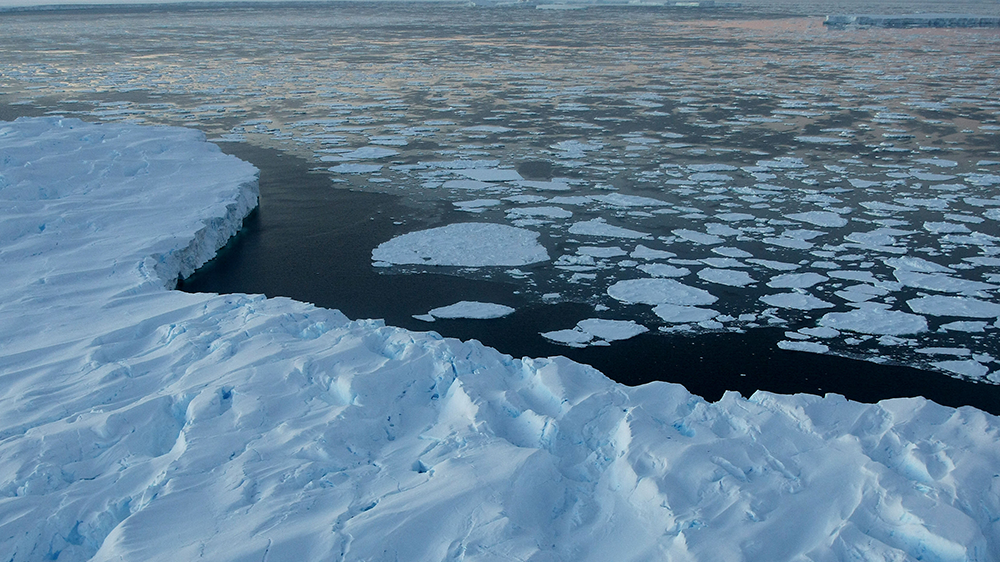Britain’s national security is under threat from climate change
In a troubled world, with real concerns about cost of living, the creeping dangers posed by climate change are too easily ignored – but we do so at our peril, write Peter Ricketts and Emily Shuckburgh


We need to stop thinking of climate change as future hazard. It is happening right now, and it is damaging our national security as well as our way of life.
Global warming has not yet reached the Paris-agreed limit of 1.5C, and already the shocks to global weather are ravaging communities around the world. Speaking as the IPCC delivered their latest assessment, UN secretary general Antonio Guterres called it a “ticking climate time bomb”.
In a troubled world, with real concerns about cost of living, the creeping dangers posed by climate change are too easily ignored. But we do so at our peril. Borders are no protection against its effects and, as authoritarian states mount a challenge to the entire international system, climate change further amplifies existing threats to UK national security. Heat, drought, water shortages, food scarcity and fuel conflict drive huge numbers of people from their homes.
Changes in the climate are having a devastating social and economic effect, putting severe pressure on many of the most vulnerable countries. This can exacerbate unrest and play a role in the outbreak of war. Ethnic tensions in Sudan in 2003 were inflamed when drought and hunger took hold. As then UN secretary general Ban Ki-moon warned at the time: “The Darfur conflict began as an ecological crisis, arising at least in part from climate change.” For decades before clashes erupted, the Sahara Desert had advanced a mile a year into Sudan.
Shifts in the climate also drive migration. Nine out of every 10 of the world’s refugees are from countries affected by the climate emergency or unable to adapt to a hostile environment. There are up to 3.6 billion people – almost half the global population – living in climate change hotspots. These places need adaptation finance to fund the developments such as crops resistant to fungal disease, systems to harvest rainwater, more efficient irrigation, and tree planting to shade crops.
Russia’s war in Ukraine has only exacerbated the problems. It has driven up the price of key foodstuffs and fertilisers, as both countries are core suppliers of these staples.
Climate change threatens our globalised supply chains for goods, services and, most crucially, food. A fifth of the UK’s critical supply chains have their origins in places vulnerable to climate disaster, according to the government’s official climate change advisers. Half of what we eat we import. In our interconnected world, the UK is impacted by climate events both at home and far from our shores.
Last summer in Pakistan, one-in-a hundred-year monsoon rains and glacial melt in the mountains created a deluge that barrelled across the nation, sweeping away homes, crops and livestock. Studies have indicated such extreme rainfall has become more likely with planetary warming. Over 1,500 people were killed, and the damages racked up $30bn.
This was a disaster for Pakistan, but it had implications for Britain as well, since Pakistan is traditionally our second-largest source of rice.
In February this year, British shoppers were met with empty supermarket shelves, and Tesco, Asda and Aldi rationed sales of tomatoes, peppers, and cucumbers. Partly to blame was a yearlong drought in Morocco and extreme weather in Spain; the two countries supply a large amount of the fruit and veg to the rest of Europe in the winter months.
Environment secretary Therese Coffey recently advised Britons to eat British turnips instead. But there are weather-related crop shortages here too, and growers are warning that homegrown leek supplies will be used up by April.
This planetary crisis is a defining test for the multilateral system. Britain, as a longstanding champion of the international order, has a responsibility to play a leading role in coordinating an effective response.
The overriding priority is to go faster in cutting emissions. Britain has been a leader on climate and was the first major economy to set a legally binding net zero target. Revolutionary innovations emanate from our universities and beyond, and we have the second-largest installed offshore wind capacity of any country in the world.
But we must accelerate our own transition while also helping poorer nations adapt to extreme weather. The Loss and Damage Fund created at the Cop27 climate summit in Egypt last year marks a recognition by the wealthier nations that financing will be essential to assist and protect the most vulnerable. But the money on the table is still far short of what is needed. By helping others respond to climate change, we are also limiting the shocks to our own food supply. We must act now to protect the nations that grow our food.
Given the scale of the problem, and the national interests we have at stake, it is deeply disappointing that the government shows no sign of restoring the cut in the UK’s overseas aid budget from 0.7 to 0.5 per cent of GDP, at a time when other major powers are increasing theirs. This damages our credibility and our capacity to mobilise others.
The transition to net zero should the highest of priorities for this and future governments. Our security as well as prosperity depend on it.
Peter Ricketts is a crossbench peer, formerly UK national security adviser, ambassador to France, and permanent secretary at the Foreign Office
Professor Emily Shuckburgh is one of the world’s leading climate scientists and director of Cambridge Zero
Join our commenting forum
Join thought-provoking conversations, follow other Independent readers and see their replies
Comments
Bookmark popover
Removed from bookmarks